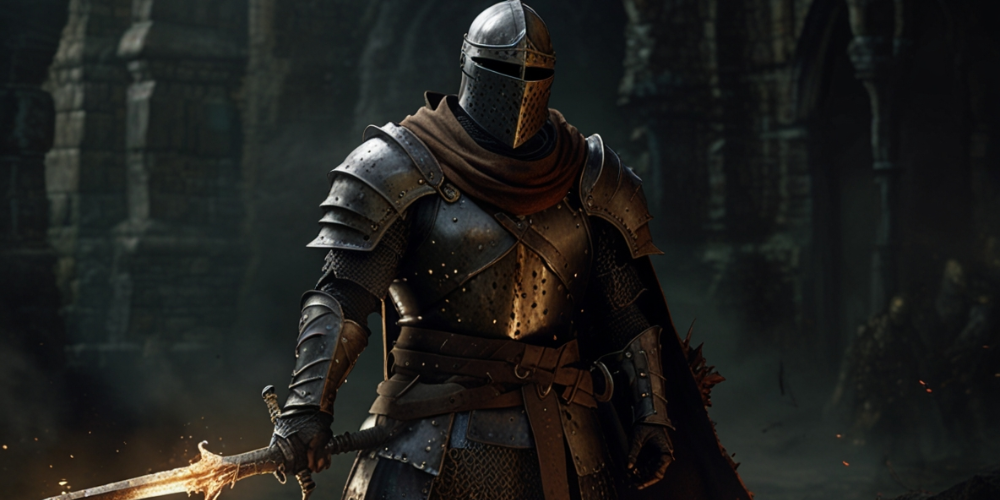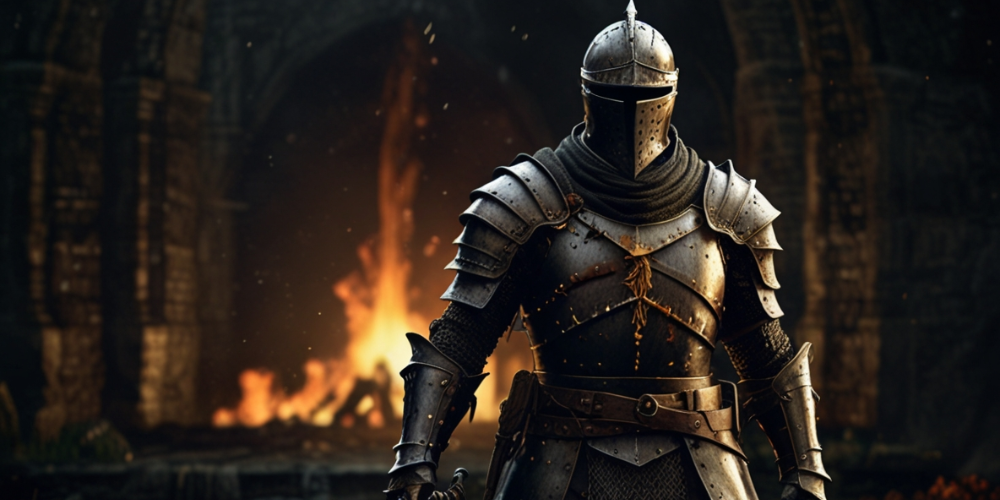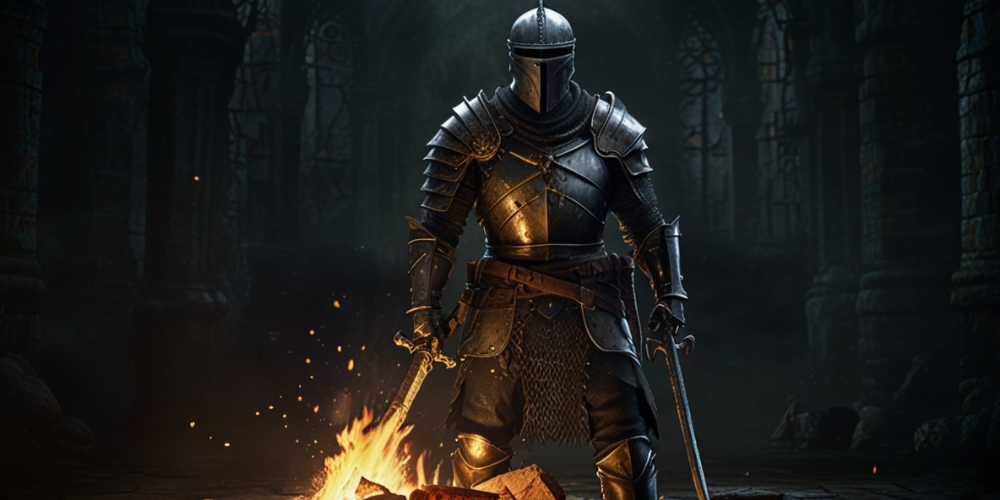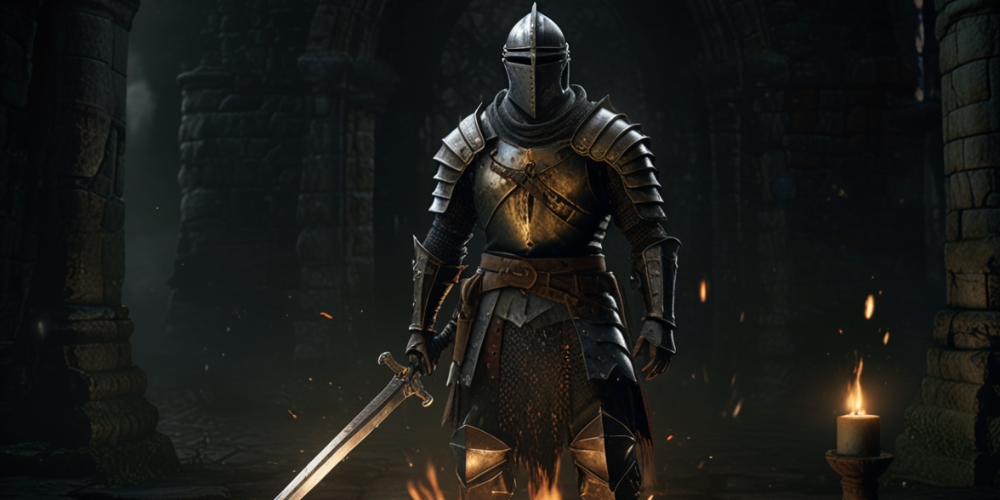Overcoming Boss Fights in Dark Souls

As I stepped into the world of Dark Souls, I was immediately enveloped by an almost oppressive atmosphere. This game is notorious for its relentless difficulty, and boss fights are the apex of that challenge. Each encounter demands not just skill, but also strategy, patience, and an understanding of the gameplay mechanics. I quickly realized that overcoming these formidable foes would be a journey filled with trials and learning experiences.
Preparation is Key
Before I even thought about facing a boss, I learned that preparation is essential. This involved grinding for souls to level up my character, enhancing my gear, and collecting consumables. Choosing the appropriate items can determine whether you win or lose. I would often spend hours farming enemies for souls, meticulously planning my build to ensure I had the best chance against each unique opponent.
Learning Boss Patterns
Once I summoned the courage to step into the boss arena, I quickly discovered that learning attack patterns was crucial. Each boss had its own rhythm, and I noticed that patience was my greatest ally. I began to study how they moved, which attacks were telegraphed, and how their behavior changed as their health dwindled. This process often required multiple attempts, leading to many frustrating yet enlightening moments.
The Importance of Timing
One of the critical aspects of combat in Dark Souls is timing. Dodging at the right moment, rolling away from an incoming attack, or knowing when to strike back were skills I had to refine. I can recall countless times where my timing was off, leading to my character’s unfortunate demise. Every death became a lesson in patience and precision, where I learned to sync my actions with the flow of battle.

Choosing the Right Equipment
The diversity in weaponry was another avenue I explored during my journey. I found that different weapons dealt different types of damage and had their own unique movesets. Experimenting with swords, maces, and magic allowed me to adapt my play style to each boss. I even crafted a backup weapon set in case my primary choice didn't work out against a particular opponent.
Status Effects and Buffs
Introducing status effects and buffs into my strategy proved to be a game changer. I experimented with items like Resin to enhance my weapon's damage and discovered the value of spells that provided temporary boosts or protection. Skillfully utilizing these can shift the course of combat to my advantage, offering brief windows of opportunity to exploit when the boss becomes susceptible.
Utilizing the Environment
The environments where boss fights take place also deserved careful consideration. I learned to use obstacles, pillars, and terrain to my advantage. Certain areas could be used to create distance from an aggressive boss or block their line of sight momentarily. Understanding how to navigate the arena while managing my spacing from the enemy became a crucial part of my strategy.

Summoning Allies
Dark Souls offers unique mechanics that allow players to summon allies for boss fights. I hesitated at first, considering it a sign of weakness, but I soon realized that cooperation could lead to greater success. Summoning another player transformed the fight dynamics, allowing for distracting and splitting the boss's attention. The joy of working together to defeat a formidable foe added a whole new layer of excitement to the experience.
Managing Stamina
Stamina management was yet another element that required my attention. Every dodge, attack, and block consumed this precious resource, creating a balancing act during the fray. I found that becoming overzealous led to my downfall, as I often ran out of stamina at the worst moments. Conserving my stamina for defensive maneuvers proved crucial for surviving those high-pressure encounters.
Mindset and Patience
Overcoming boss fights in Dark Souls is as much a mental challenge as it is a physical one. I had to cultivate a mindset of resilience, understanding that death was an inevitable part of the journey. Instead of becoming discouraged, I began to see the beauty of failure as a prerequisite for growth. Each defeat taught me valuable lessons about my mistakes, pushing me to refine my strategies for the next encounter.
Healing and Resource Management
During my battles, managing my healing items became increasingly important. Limited healing resources meant that I had to be judicious around when to use them. I learned to save them for critical moments, often choosing to heal only when I was sure I would not be interrupted by a boss attack. This fine line of resource management kept the pressure on, making every decision feel vital.

Adaptability in Strategy
One thing I found essential was adaptability. No two boss encounters felt the same, and leaning solely on one method led to predictable failures. I learned to alter my approach mid-fight, whether it meant switching weapons, employing different spells, or changing my dodging tactics based on how the battle was going. Flexibility became an integral part of my success in these monumental battles.
Visual and Audio Immersion
The aesthetic elements of Dark Souls played a significant role in the experience. The haunting music and atmospheric sounds drew me deeper into the world, making each boss fight feel monumental. The visual design of each arena and the bosses themselves added to the sense of weight and significance surrounding these encounters, amplifying the thrill and immersion of every engagement.
Celebrating Victories
The exhilaration that followed a hard-fought victory was unlike anything else. After conquering a difficult boss, I felt an immense sense of achievement. Each win was a testament to my persistence, and I often found myself reflecting on everything I had learned throughout the fight—my preparations, strategies, and the moments when I embraced a calculated risk that ultimately paid off. These moments became cherished memories on my gaming journey.
Personal Growth Through Challenge
The bosses in Dark Souls became more than just obstacles; they represented personal growth. Each encounter challenged not only my gameplay skills but also my capacity to face adversity. Embracing this journey filled with setbacks taught me the value of diligence, persistence, and strategy. As I progressed, I discovered not just how to defeat these powerful foes but also a deeper understanding of myself as a player and as a person.
Community and Shared Experiences
The Dark Souls community played a vital role in my journey. Sharing stories of frustration and triumph with fellow players helped to foster a sense of camaraderie. Whether through forums or social media, I often found solace in the knowledge that I was not alone in facing these daunting challenges. The shared experiences often provided insight into unique strategies or techniques that I had not considered earlier.







